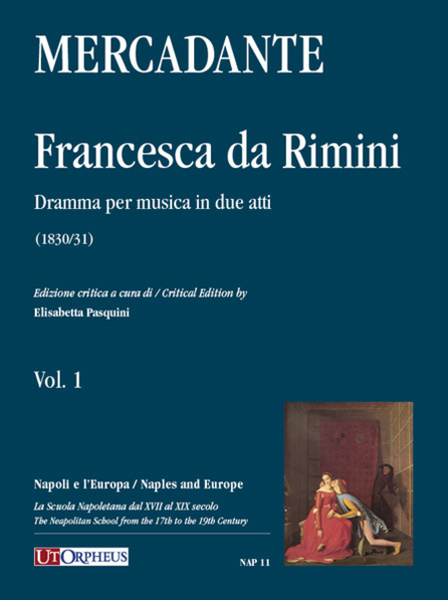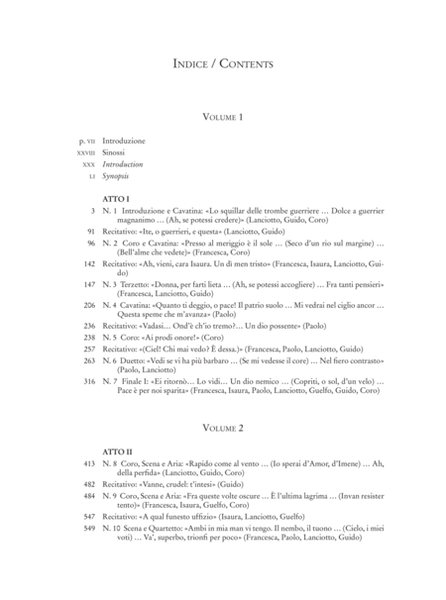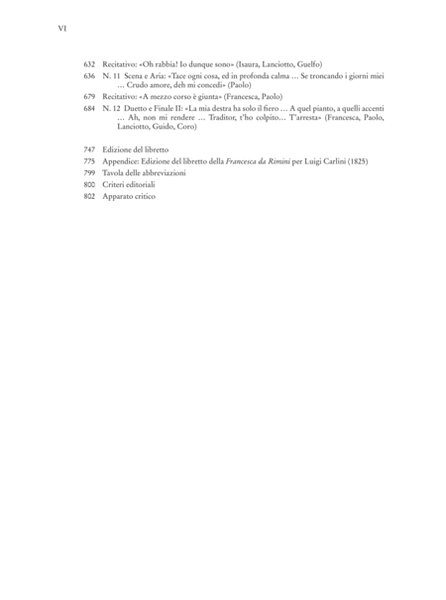Francesca da Rimini. Dramma per musica in due atti (1830/31). Critical Edition
-
Ships in 3 to 4 weeks
Details
Description
SKU: UT.NAP-11
Composed by Saverio Mercadante. Edited by Elisabetta Pasquini. Paperback (Soft Cover). Napoli e l’Europa (Naples and Europe). Classical. Score. 916 (2 volumes) pages. Ut Orpheus #NAP 11. Published by Ut Orpheus (UT.NAP-11).ISBN 9790215323438. 9 x 12 inches.
Performance Material on Hire
[Solo: SSATTB - Choir: SATB - 2.2.2.2 - 4.2.3.0 - Tp - Hp - Str]
Francesca da Rimini is a drama for music in two acts by Saverio Mercadante, libretto by Felice Romani; the text is freely inspired by the unfortunate events of the two lovers, Francesca and Paolo, of which Dante's Comedy (canto V) also narrates.
According to some scholars, the first performance of Francesca da Rimini took place in Madrid in January 1828; however, this date is not reflected in the "Diario de Avisos de Madrid", a publication that daily reserved a conspicuous space for news on the shows staged in the Spanish city: the years between 1828 and 1831 in fact do not mention the work. Furthermore, no printed libretto of Mercadante's Francesca da Rimini is preserved today – an inexplicable fact, if one admits that the performance took place. The text of the opera can be largely traced back to the one prepared by Romani for the homonymous work by Antonio Carlini (Naples 1825), which Mercadante was able to know before his stay in Spain.
Following the missed Spanish premiere, the opera should then have been represented at La Scala Theater in a subsequent season, with reliability the imminent one of the 1831/32 carnival; but shortly thereafter the impresario died: thus the contractual obligations involving him were no longer fulfilled, and, for a second time, Mercadante was then forced to shelve the plans about Francesca da Rimini, put aside now for several months.
In fact, the scoring – very similar to that of the operas planned at La Scala in the same Carnival period – assumes that Francesca da Rimini was destined for a theatre of great means, like few others in Italy besides La Scala. But the failure of the opera may also have been due to the presence of the part of an amoroso en travesti, Paolo, to whom Mercadante assigns a prominent role also in terms of music: in 1831 and in Italy such a solution was no longer so frequent as a few years before or in provincial theatres, and so this condition may possibly have affected the fate of the negotiations in Milan, and may explain how the composer was then unable to have the score performed elsewhere.
This critical edition is based on manuscript copies conserved in the Museo internazionale e Biblioteca della Musica di Bologna (autograph score) and in the Biblioteca Histórica Municipal in Madrid (score and separate parts).



 Share
Share